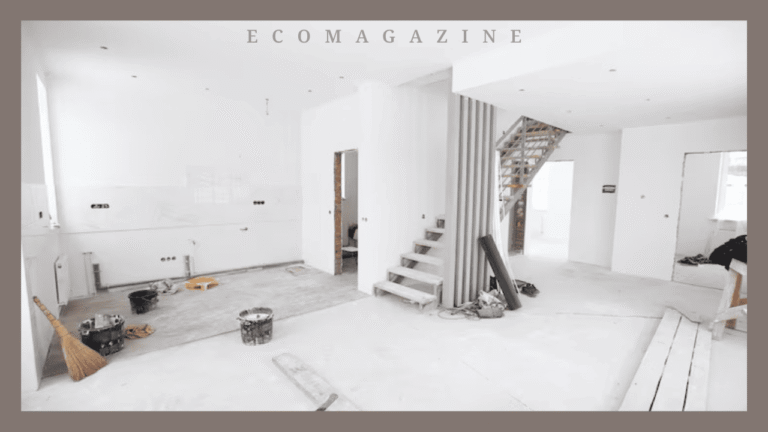Redesigning your living space often brings excitement along with challenges. With the right planning and foresight, you can transform your living space into a dream home that reflects your style and meets your needs. However, a successful renovation requires careful consideration of various factors to ensure the process runs smoothly. From defining your goals and setting a budget to choosing the right professionals, each step plays a crucial role in the outcome of your project.
Whether you’re looking to update your kitchen, expand your living room, or create a cozy outdoor space, it’s essential to approach your renovation with a clear plan. For more detailed guidance, check out this resource on planning your home renovation, which can help steer you in the right direction.
This blog post outlines seven essential steps that will help you plan your home renovation successfully, ensuring that the final result aligns with your vision and enhances the value of your property.
1. Define Your Goals
The initial stage of a home renovation involves setting clear objectives for what you want to achieve. What do you aim to accomplish through this renovation? Are you looking to increase property value, improve functionality, or simply refresh the aesthetics of your space? Understanding your objectives will guide your decisions throughout the process. Make a list of your priorities and consider how your renovation aligns with your lifestyle.
For instance, if you have a growing family, you might prioritize creating more space or additional bedrooms. On the other hand, if you plan to sell your home soon, focusing on high-return projects like kitchen or bathroom upgrades may be more beneficial. Having a clear vision will not only help you stay focused but also make it easier to communicate your needs to contractors and designers.
2. Set a Realistic Budget
Once you have defined your goals, the next step is to set a realistic budget. This involves not only estimating the cost of materials and labor but also accounting for unexpected expenses that may arise during the renovation process. It’s wise to allocate an additional 10-20% of your budget for unforeseen costs, which can help prevent financial strain. Researching the average costs of similar renovations in your area will provide you with a better understanding of what to expect.
Moreover, when setting your budget, consider the long-term benefits of your renovation. While it may be tempting to cut corners, investing in quality materials and skilled labor can lead to a more durable and aesthetically pleasing finish. For more insights on budgeting, refer to this helpful guide on planning your home renovation.
3. Create a Timeline
Creating a clear timeline is crucial to ensure your renovation stays on schedule. Determine how long each phase of the project will take and set realistic deadlines. Consider the time needed for planning, obtaining permits, and completing construction. Having a timeline will help you manage expectations and minimize disruptions to your daily life. Additionally, be prepared for delays, as renovation projects often come with unforeseen challenges.
To create a timeline, break the project down into smaller tasks and allocate specific timeframes for each. Regularly review your progress and adjust your timeline as needed. This proactive approach will help you stay organized and ensure that your renovation stays within the planned schedule.
4. Hire the Right Professionals
Choosing the right professionals is crucial to the success of your home renovation. Depending on the scope of your project, you may need to hire contractors, architects, interior designers, or specialized tradespeople. Start by researching potential candidates and reading reviews from past clients. It’s also beneficial to ask for recommendations from friends or family who have undergone similar renovations.
Conduct interviews to gauge their experience, communication style, and commitment to quality. When hiring professionals, ensure they are licensed and insured to protect yourself from liability. Establish clear lines of communication and set expectations upfront to avoid misunderstandings later on. A good team will not only execute your vision but also provide valuable insights and suggestions throughout the renovation process.
5. Obtain Necessary Permits
Before commencing any renovation work, it’s essential to obtain the necessary permits. Depending on your location and the nature of your project, certain renovations may require approval from local authorities. This can include structural changes, electrical work, and plumbing updates.
Check with your municipality to understand the specific requirements for your project. Failing to obtain the proper permits can lead to fines, delays, or even the need to undo completed work. While the permitting process may seem tedious, it’s a crucial step in ensuring that your renovation complies with local building codes and regulations. This not only protects your investment but also ensures the safety and longevity of your home.
6. Design and Plan Your Space
With your goals, budget, timeline, and professionals in place, it’s time to focus on the design and planning of your space. Collaborate with your designer or architect to create a layout that maximizes functionality while reflecting your personal style. Consider factors such as traffic flow, natural light, and storage solutions. Finding the right balance between visual appeal and functionality is essential.
Don’t hesitate to explore different design styles and materials to find the perfect fit for your home. Creating a mood board or gathering inspiration from design magazines and websites can help clarify your vision. Once you have a design plan, review it with your team and make any necessary adjustments before moving forward.
7. Prepare for the Renovation Process
Finally, preparing for the renovation process is key to minimizing stress. Inform your family and neighbors about the upcoming work to manage expectations regarding noise and disruptions. Create a temporary living arrangement if necessary, especially for extensive renovations that may render parts of your home unusable.
Additionally, ensure that you have a plan in place for managing pets and children during the renovation. Clear the work area of any personal belongings to facilitate a smoother workflow for your contractors. Establish regular check-ins with your project manager to monitor progress and address any concerns that may arise. By preparing adequately, you can create a more seamless renovation experience.
FAQs
How do I know if my renovation requires a permit?
Contact your local building authority to find out whether your project needs a permit. Generally, structural changes, electrical upgrades, and plumbing work will need approval.
What’s the usual expense for renovating a house?
The cost of home renovations varies widely based on the scope of the project, location, and materials used. On average, homeowners spend between $10,000 and $50,000, but larger renovations can exceed this range.
How long does a typical renovation take?
How long a renovation takes largely depends on how complex it is. Minor projects may take a few weeks, while major renovations can take several months. Establishing a timeline can help manage expectations.
Should I live in my home during the renovation?
It depends on the extent of the work. For minor renovations, you may stay, but significant projects may necessitate temporary relocation for safety and comfort.
How do I make sure my renovation project stays within budget?
To stay on budget, create a detailed plan, set a realistic budget with contingencies, and monitor expenses throughout the renovation process. Regular communication with your contractors also helps.
Conclusion
Planning your home renovation successfully involves careful consideration of several essential steps. From defining your goals and setting a budget to hiring the right professionals and preparing for the renovation process, each stage plays a critical role in achieving your desired outcome.
By following these steps and remaining organized throughout the project, you can minimize stress and create a space that enhances your lifestyle and property value. Remember that renovations can be unpredictable, so flexibility and open communication with your team are vital. With the right approach, your home can become the sanctuary you’ve always envisioned.


